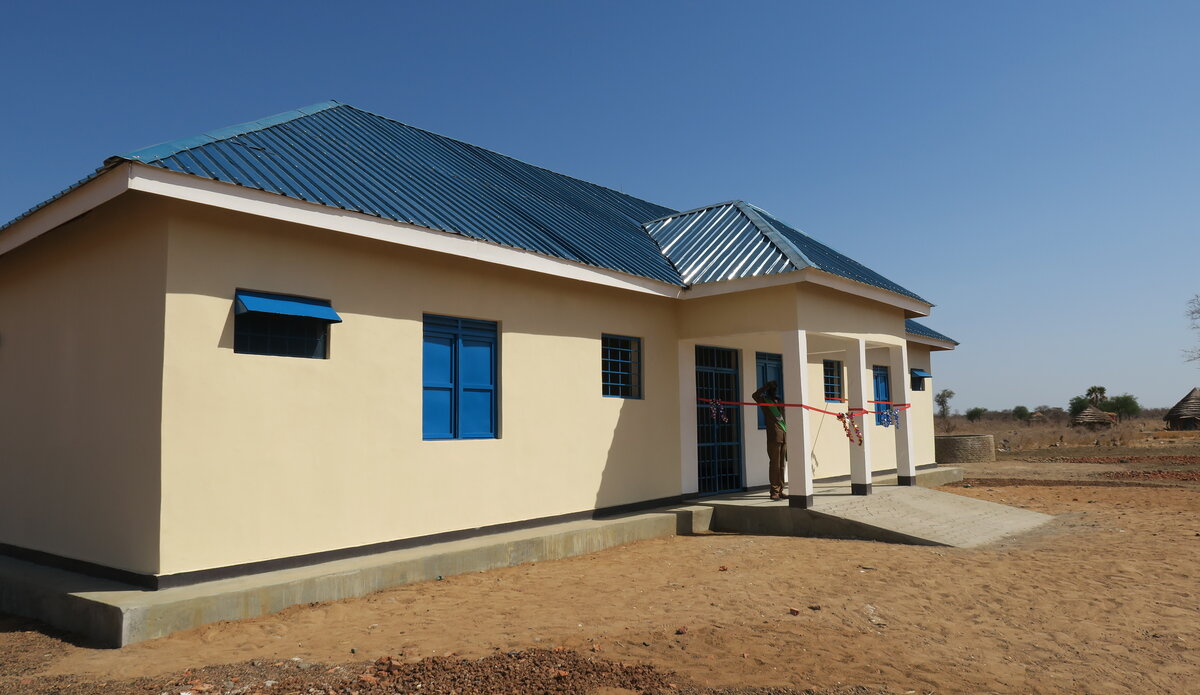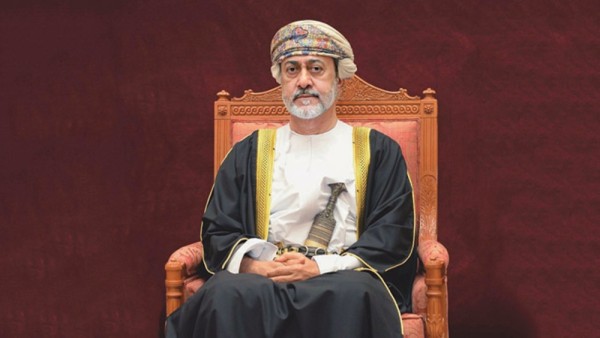Inmates serving their sentences in Wanyijok Prison in Aweil East county, Northern Bahr el Ghazal, can finally look forward to more humane treatment due to an UNMISS-facilitated construction of a brand-new prison facility. Photo by Emmanuel Kele/UNMISS
Till recently, inmates of Wanyijok Prison, Aweil East county, located in Northern Bahr El Ghazal state, were chained in the open air.
When it rains, they were soaked to the skin; during the dry season, they spent hours in the burning sun till dusk fell providing some relief.
“We had no choice but to shackle offenders in an uncovered area, where they didn’t have any shelter from the elements,” admits Kiir Yor, the County Commissioner.
Human Rights officers from UNMISS corroborate Mr. Yor’s statement—the prison consisted of three meagre tukuls (grass huts), which could probably house only 50 inmates. Meanwhile, the number of prisoners currently serving their sentences is 175.
Clean water for drinking and hygiene purposes was almost non-existent, as were beds for a decent night’s sleep and perimeter security in the form of a fence.
Perhaps the most powerful account of these horrific conditions, though, comes from William Garang, an inmate. “I have been chained outdoors for almost two years now,” he reveals. “My leg has become progressively weaker; despite this, I walk every day as far as my restraints permit to the single water point. You cannot live without water.”
To help ease this suffering, the United Nations Mission in South Sudan (UNMISS) has recently completed the construction of a new prison facility here. “The new facility is built in accordance with the international standards for holding persons in custody,” states Alfred Zulu, a Human Rights Officer serving with the peacekeeping mission. “It is a much larger, properly ventilated space which is airy and receives sunlight,” he adds.
Mr. Zulu’s words are echoed by Commissioner Yor. “When I toured the building and saw the way it’s designed, I was immensely relieved,” states the Commissioner. “All cell blocks have self-contained toilets, and we now have separate prison wings for male and female offenders. This is a massive step forward in enabling us, as prison officers, to treat inmates humanely and uphold their dignity.”
The construction was facilitated under the mission’s Quick Impact Projects programme which uses local implementing partners to action small-scale, low-cost projects aimed at benefiting host communities. These are completed within a short timeframe.
The newly constructed building for Wanyijok Prison took a mere three months to complete and cost 50,000 US dollars.
The project was overseen by local partner Pan Aweil Developments and had its fair share of challenges.
“COVID-19 proved to be a spanner in the works; we had to make sure construction workers were safe, masked and physically distanced. Buying masks increased the cost while we had to reduce our labour force to comply with the pandemic mitigation measures. This slowed us down,” said William Kolong, executive director of the implementing partner organization.
“Additionally, construction needs a lot of water and we were working in a place which didn’t have access to it; my builders had to walk long distances to make sure we had enough water to finish this project. It all came together at the end though,” he added.
It is hoped that the newly constructed prison will be a secure location for offenders, reduce overcrowding among detainees and benefit their eventual reintegration into society after they serve their sentences. - Emmanuel Kele, UNITED NATIONS








